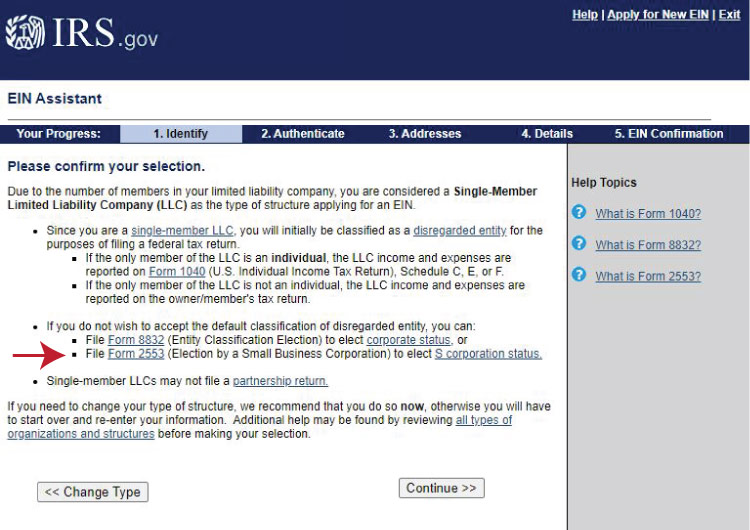How to Start an S Corp in North Carolina
If you’re considering starting an S corporation (S corp) in North Carolina, this guide will help you determine if it’s the right move for your business.
We’ll also walk you through the process of setting up an S corp and explain how it could save you money on taxes. Read on to learn more about forming a North Carolina S corp.
Pro Tip: Get a free consultation with a tax professional to determine if an S corp is right for you.

Factors to Consider Before Starting an S Corp in North Carolina
Before forming an S corp, you have to consider the following factors:
- Is an S corporation the best strategy for your business?
- S corporation restrictions
- Are S corp tax advantages right for you?
Is an S Corporation the Best Strategy for Your Business?
For help with choosing the right structure for your business, visit our Choosing a Business Structure guide.
S Corporation Restrictions
S corps have several restrictions, such as being limited to one class of stock and 100 shareholders. Read our What Is an S Corporation guide for full details.
Are S Corp Tax Advantages Right for You?
An S corporation is a tax designation that can be elected by a limited liability company (LLC) or corporation. With an S corp, business owners are considered employees of the company and must receive a reasonable salary. Since all S corps technically have employees, the s corp must run payroll.
In order to benefit from a North Carolina S corp tax designation, your business needs to make enough money to offset payroll expenses. Furthermore, S corps are beneficial for business owners who take large distributions in addition to their salary.
To learn more about the tax advantages of an S corp, read our LLC vs. S corp guide and take a look at our S Corp tax calculator.
Pro Tip: Get a free consultation with a tax professional to determine if an S corp is right for you.
How to Form a North Carolina S Corp
There are two main ways to start an S corp:
- By forming an LLC and electing S corp tax status from the IRS when you request your employee identification number (EIN)
- By forming a corporation and electing S corp status from the IRS
We recommend forming an LLC because it’s simpler and more cost-effective.
Not in North Carolina? Check out our other How to Start an S Corp guides to learn more.
Recommended: If you have an existing LLC, visit our How to Convert an LLC to S Corp guide.
Steps for Forming an LLC and Electing S Corp Status in North Carolina
Starting a North Carolina LLC and electing S corp tax status is easy. You can use our guides to start an LLC with the S corp status yourself, or you can hire a service provider like Northwest to guide you through this process.
There are five basic steps to start an LLC and elect S corp status:
Step 1: Name Your LLC
Step 2: Choose a Registered Agent
Step 3: File the Articles of Organization
Step 4: Create an Operating Agreement
Step 5: Get an EIN and File Form 2553 to Elect S Corp Tax Status
Step 1: Name Your LLC
Choosing a company name is the first and most important step in starting your LLC in North Carolina.
Be sure to choose a name that complies with North Carolina naming requirements and is easily searchable by potential clients.
1. Follow the naming guidelines for a North Carolina LLC:
- Your name must contain one of the following: limited liability company, ltd. liability co., limited liability co., ltd. liability company, LLC, or L.L.C.
- Your name cannot include words that could confuse your LLC with a government agency (FBI, Treasury, State Department, etc.).
- You need certain approval to use any of the following words in your LLC’s name:
- bank, banker, banking cooperative, co-op, mutual, trust, architect, architecture, architectural, certified public accountant (CPA), engineer, engineering, insurance, pharmacy, prescription drug, drug, prescription, Rx, apothecary, realtor, surveyor, survey, surveying, and wholesale.
- Your name must be distinguishable from any existing business in the state.
You can also read the North Carolina state statute about LLC naming guidelines for more information.
2. Is the name available in North Carolina? Make sure the name you want is available by doing a business entity search on the North Carolina Secretary of State website.
3. Is the URL available? We recommend checking to see if your business name is available as a web domain. Even if you don’t plan to create a business website today, you may want to buy the URL in order to prevent others from acquiring it.
Step 2: Choose Your North Carolina Registered Agent
You must elect a registered agent for your North Carolina LLC.
An LLC registered agent will accept legal documents and tax notices on your LLC’s behalf. You will list your registered agent when you file your LLC’s Articles of Organization.
Many business owners choose to hire a registered agent service. Many of these services will form your LLC for a small fee and include the first year of registered agent services for free.
Step 3: File the North Carolina LLC Articles of Organization
The North Carolina Articles of Organization is used to officially register an LLC.
File Your North Carolina Articles of Organization
OPTION 1: File Online With the North Carolina Secretary of State
File Online– OR –
OPTION 2: File by Mail or in Person
Download FormState Filing Cost: $125, payable to the Secretary of State (Nonrefundable)
Mailing Address:
The Secretary of State
Business Registration Division
P.O. Box 29622
Raleigh, NC 27626
Office Address:
Business Registration Division
2 South Salisbury St.
Raleigh, NC 27601
Step 4: Create an LLC Operating Agreement
An LLC operating agreement is a legal document that outlines the ownership and member duties of your LLC.
For more information, read our LLC Operating Agreement guide.
Our operating agreement tool is a free resource for business owners.
Step 5: Get an EIN and Complete Form 2553 on the IRS Website
An EIN is a number that is used by the US Internal Revenue Service (IRS) to identify and tax businesses. It is essentially a Social Security number for a business.
EINs are free when you apply directly with the IRS.
Elect S Corp Tax Status
During the online EIN application, the IRS will provide a link to Form 2553, the Election By a Small Business form.
Visit our Form 2553 Instructions guide for detailed help with completing the form.
This is the form to elect S corp tax status for your LLC:

Ready to start saving on your taxes?
We recommend using a formation service to start your North Carolina S corp for you, so you can focus on the things that matter most — growing your business.
Keep Your North Carolina S Corp Compliant
Forming your North Carolina S corp is the first step. To keep your business in good standing, you must comply with both state and federal regulations.
File the BOI Report
Federal law requires that all S corps — whether they’re LLCs or corporations — file a Beneficial Ownership Information (BOI) report with the Financial Crimes Enforcement Network (FinCEN). This report provides the government with essential information about the ownership and control of your business, helping to maintain transparency and compliance.
You can file the BOI report through the FinCEN website.
Open a Business Bank Account
It’s crucial to separate your business finances from your personal accounts to maintain your LLC’s liability protection. Setting up a business bank account also is key to managing your finances effectively and ensuring compliance with state regulations.
For tailored banking options, explore our guide on the Best Banks for Small Business.
Obtain Required Business Licenses and Permits
Operating a business in North Carolina requires obtaining the appropriate licenses and permits, which vary based on your industry and location. Complying with these requirements is essential to avoid fines and legal issues.
For more information on the licenses you need, visit our North Carolina Business License guide.
File Your Annual Report
North Carolina LLCs must file an Annual Report with the North Carolina Secretary of State. This report updates your business’s key information, such as the address of your principal office and your registered agent. The Annual Report is due by April 15 each year, and failure to file can result in penalties or the administrative dissolution of your LLC.
You can file your Annual Report online at the North Carolina Secretary of State’s website.
Understand North Carolina’s S Corp Tax Obligations
North Carolina S corps are subject to state income tax at the corporate level unless they meet specific criteria for pass-through taxation. Additionally, your business must comply with federal tax obligations. Understanding these tax requirements is crucial to maintaining compliance.
For detailed information on tax obligations, visit the North Carolina Department of Revenue (NCDOR).
Fulfill North Carolina Sales Tax Requirements
If your North Carolina S corp sells taxable goods or services, you must collect and remit sales tax. Registration with the NCDOR is necessary to comply with these sales tax regulations.
To learn more about sales tax registration and compliance, visit the NCDOR Sales and Use Tax page.
Start a North Carolina S Corp FAQ
An S corporation (S corp) is a tax designation that an LLC or a corporation can elect.
No. The default taxes for an LLC and taxes for an S corp are not the same.
With an S corp, owners pay personal income tax and self-employment tax on a predetermined salary. They may then withdraw any remaining profits from the business as a “distribution,” which isn’t subject to self-employment tax.
With an LLC, all company profits pass through to the owners’ personal tax returns, and then the owners must pay personal income tax and self-employment tax on the entire amount.
S corp owners are required to earn a “reasonable” salary, which basically means a fair market rate based on the individual’s qualifications as well as their duties and responsibilities at the company. The purpose of this requirement is to prevent S corp owners from paying themselves an artificially low salary in order to pay less self-employment tax.
A distribution is a dividend that a shareholder/owner can take from the business profits that remain after a company pays all of its employee salaries. Shareholders must pay personal income tax on distributions, but distributions aren’t subject to self-employment tax.
LLCs and corporations that operate under a “doing business as” (DBA) name can choose the S corp election.
North Carolina has a booming economy with businesses focused on construction, transportation, real estate, warehousing, tourism, and more. Businesses in any industry can save money on their taxes by forming a North Carolina S corp.
If you plan to do business locally in North Carolina, forming an S corp can help you save money at tax time. While it does have a small income tax rate, North Carolina’s attractive business incentives and low cost of living make it a great state for S corps.